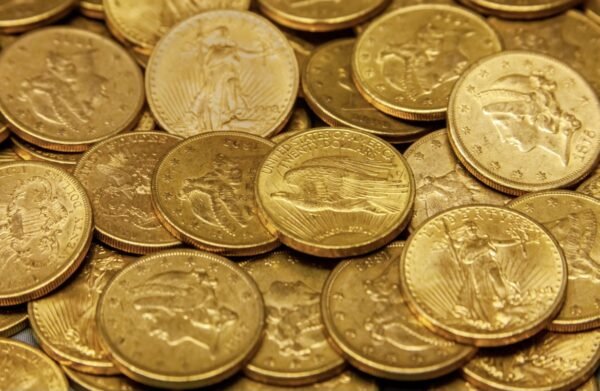
Coin collection is the practice of collecting coins as a hobby, to make money, or both.
Coin collection has been around since ancient times but has become more prevalent in recent years. Today, more and more people have developed an interest in the financial implications of the bullion and numismatic values of coins. If you want to know the current value of your coins, you may seek coin collection appraisal services. You may get in touch with companies that buy and sell gold in case you decide to sell your gold coins. And if you want to venture into buying American rare coins, then you may get in touch with companies that buy and sell coins.
For a collector, knowing bullion vs numismatic coins is essential. The bullion value of coins refers to the value of the metal present in them, such as gold or silver. Coins with higher gold and silver content are more valuable than coins with lower content. Buy Gold and Silver UK only at Goldcore. A typical gold bullion coin usually is composed of 91.7% gold and 3% silver, with the remaining percentage made up of copper. On the other hand, a coin’s numismatic value refers to its rarity and condition. Their rarity can be determined by their aesthetic appeal, historical significance, or potential to appreciate over time.
Investing in coins comes with its share of pros and cons.

Pros of Investing in Coins
Below are some of the reasons แทงบอลออนไลน์ collectors are in the game:
1. Potential For High Returns
Coins with high metal content and rare quality can fetch huge returns. They have stable values, so they’re not subject to market volatility the way stocks and other investments are.
2. Diversification
In the investment world, diversification is an ideal way to spread risk. Precious metals and rare coins can be used as an inflation hedge in your investment portfolio. With their immunity to market volatility, their value can increase during inflation.
3. Tangible Asset
Physical assets may be more valuable in the long run as they’re not subject to the same volatility as digital assets, like bitcoin. Precious metals and rare coins can be kept and stored. This makes them less susceptible to the risks associated with digital assets, such as cybersecurity threats.
4. Little To No Maintenance
Another essential thing to know when collecting coins is the difference between uncirculated and circulated ones. Uncirculated coins are coins that are not used like regular money. Because they are not meant to reach everyday commerce, they are less likely to get damaged. Thus, cleaning uncirculated coins may not be necessary, since you would want to keep them in mint condition.
On the other hand, circulated coins have been used in circulation. They have been exchanged multiple times by various merchants and parties in the economy. This means they may already show signs of wear and tear, so cleaning them may be necessary. However, gentle cleaning is usually enough, and no further maintenance is required if you keep them in a protective case.
Cons of Investing in Coins
Here are some of the reasons collectors become wary of investing:
1. High Investment Costs
At times, coins may be expensive to buy initially. A bullion coin, for example, can cost anywhere from a couple of hundred dollars to thousands. Furthermore, you may be required to purchase display cases, magnifying glasses, or coin albums to store your coins safely.
Numismatic coins could also cost a fortune if the coin is sought-after and in good condition. Due to their rarity and shape, these coins can cost up to a few thousand dollars.
2. Risk Of Theft
As with any investment, valuable items come with the risk of theft. Coins, for example, can be stolen or lost. So it’s important to take steps to protect them from theft, such as storing coins in a safe or investing in security systems.
3. Risk Of Fraud
There’s also the risk that you may purchase counterfeit or damaged coins. This can be challenging to spot if you’re not an expert in the field. Make sure to buy coins from a reputable seller or dealer who can verify the coin’s authenticity.
4. Vulnerability To Market Fluctuations
The coin market can still fluctuate, though not as dynamically as the stock market. This means their prices can still decline or increase in value from time to time. These fluctuations may be caused by anything from political and economic news to the state of the market itself. It’s essential to keep up to date with what’s happening in the market to make informed decisions.
Conclusion
If done correctly, coin collection can be an exciting and potentially lucrative investment strategy. Before investing, it is critical to do your research—to know how the scales tip for you—and ensure you completely understand how coin trading works. In consequence, you will know your way around the market, trade with ease, and, more importantly, maximize your returns.
